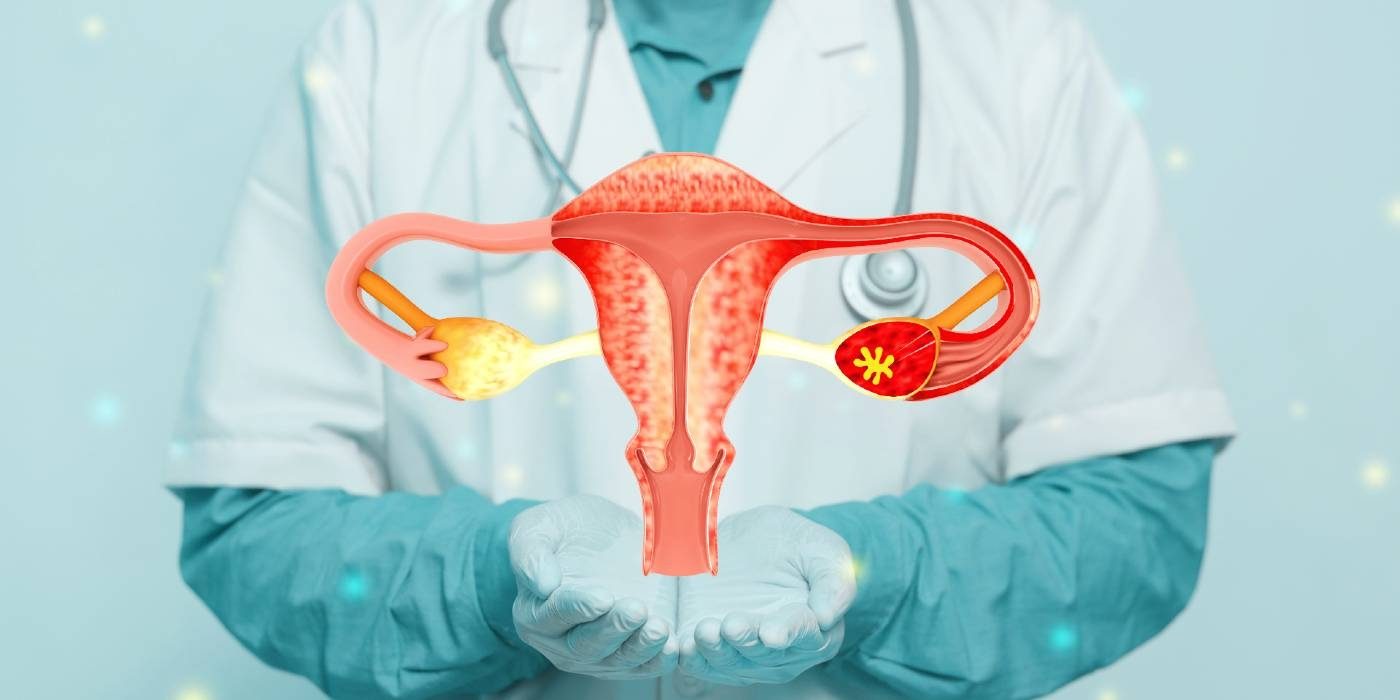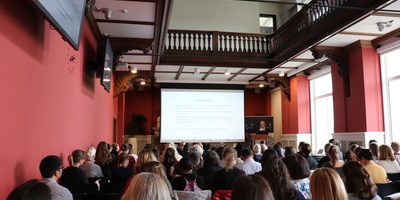Endometriosis is a painful gynaecological condition affecting over 190 million girls and women globally. India alone represents 25 percent of the burden with an estimated 43 million women enduring the pain. Women living with endometriosis suffer from a diverse and complex range of symptoms with severe and life-impacting pain. Hormonal changes in the body during the monthly cycle cause cells in the endometrial-like tissue to grow, and then breakdown and bleed into places where it cannot escape. While menstrual blood leaves the body during menstruation, this blood remains inside, leading to inflammation and formation of scar tissue. This scar tissue can form adhesions that can cause severe pelvic pain. Gynaecological morbidities such as endometriosis affect a substantial proportion of women but the condition receives little attention globally.
On 15th February 2024, The George Institute for Global Health organised a stakeholder consultation with key stakeholders “Tackling Endometriosis Together to Improve Women’s Lives” to communicate the findings of a qualitative study conducted by The George Institute for Global Health India in collaboration with partners from Population Council, Postgraduate Institute of Medical Education and Research, Chandigarh, Indian Council of Medical Research - National Institute for Research in Reproductive and Child Health (ICMR-NIRRCH) and the University of Oxford.
The study explores women’s experiences of endometriosis and its impact on them and their partners’ lives. The research study was undertaken in the states of Delhi and Assam among women above the age of 18 years who were laparoscopically diagnosed with endometriosis. The study participants included both women and their partners. The data was collected between November 2021 and July 2022 using a semi-structured interview guide and analysed thematically.
In the first session of the stakeholder consultation, Preety Rajbangshi, Senior Research Fellow - Women’s Health Project at The George Institute who led the study presented the study findings. She highlighted how endometriosis impacts almost every aspect of women’s lives, including their struggles with education, social activities, and stigma. Despite endometriosis not being stigmatized as a disease, women face ridicule for symptoms like pelvic pain, heavy bleeding, and infertility. The study also highlights how women who are infertile are face criticism by people in family, social, and work settings more than women with children.
“No one understands my plight. They just say, ‘Why do you keep going to the doctor?”
“What is the point of working so hard? I know I’m not able to meet my career goals as I’m in so much pain,”
These are just some of the testimonials of women enduring the suffering. One of them, Ms Apoorva Joshi, Women's Care Advocate and Clinical Nutritionist, shared her experience of living with endometriosis.
“From my personal experience, for an invisible disease like endometriosis which silently impacts 43 million patients' physical, mental, social, and financial well-being in India, we need to have specialised endometriosis clinics with multidisciplinary teams available at as many locations as possible. Everyone deserves access to good quality care to improve their quality of life."
Endometriosis is not just a women's issue; it affects entire families and relationships. Understanding its impact is crucial for providing support and improving quality of life for those affected by this chronic condition. It has a significant impact on both women and their partners in terms of psychological, financial, diagnostic delays and intimate partner relationships. Women experience feelings of helplessness, anxiety, and depression, while men struggle with their inability to relieve their partner's symptoms, and additional roles. Both incur significant expenses for treatment, leading to financial distress, especially for men whose partners undergo fertility treatments. Lack of knowledge about the condition and normalization of symptoms lead to delays in diagnosis and treatment.
Both women and men face uncertainty about the course of the disease and its treatment, impacting family planning and financial stability. Although endometriosis affects sexual intimacy, the study shows that partners remain supportive despite challenges.
“We are supposed to be in an era where women are free, women are the same as men… If this was a men’s disease, they would have found something, they would have found something long time”, said a woman participant in an interview.
In the open discussion – Finding solutions to bridge knowledge gaps on Endometriosis, Ms. Prachi Kathuria, Capacity Development Consultant, NCD Alliance, Dr Rahul Gajbhiye, Clinician- Scientist at the ICMR-National Institute for Research in Reproductive Health, Member of Endometriosis Society of India and International, Dr Vanita Jain, Head Obstetrics & Gynaecology Department, PGI Chandigarh, Dr Sapna Desai, Women’s Health Specialist, and our colleague, Ms. Chhavi Bhandari delved deeper into improving awareness among women, health providers, and the community. The discussion emphasized the importance of raising awareness among women, healthcare providers, and the community about endometriosis. By increasing knowledge about the condition's symptoms and implications, individuals can seek help sooner, leading to early diagnosis and intervention. The discussion highlighted the urgent need to address knowledge gaps surrounding endometriosis and implement strategies to improve awareness, early diagnosis, and treatment.
Commenting on the findings of the research study, Dr Sapna Desai said, “This study highlights the importance of investing in women’s health through the life course at all levels of our health system. Integrating gynaecological care into primary health services is a critical first step to ensure women get the information. diagnosis and services they need to address endometriosis and related conditions."
The findings show that there are similarities and differences on how the condition affects different life domains of women and their partners. The impact on women is significantly more than the impact on men. There is a need to further understand long-term impact of endometriosis on women’s lives to inform policy. The stakeholder consultation has been significant in initiating discussion on endometriosis .. Further consultations will aim to address gaps identified in the health systems and policy ecosystem surrounding women’s health in general and endometriosis in particular.




